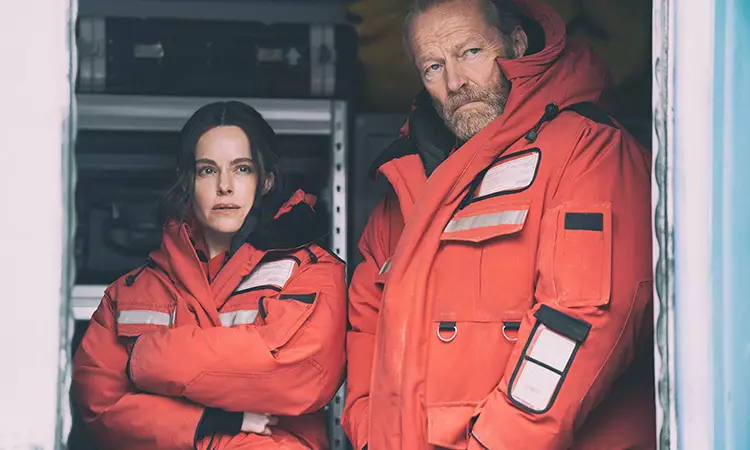In the realm of television, few genres offer an escape to the unknown quite like science fiction, and Amazon Prime’s “The Rig” serves as an exhilarating reminder. The series, which successfully carved out its niche in the inaugural season, captures the essence of a survival thriller intertwined with deep ecological and existential questions. As the crew of the Kinloch Bravo oil rig faces calamity amid mysterious fog and looming dangers from both nature and themselves, audiences are left eager to witness the unraveling of deeper narratives in the upcoming second season.
Set against the desolate backdrop of the North Sea, the plot centers on a diverse cast of characters grappling not only with external pressures but also with their internal conflicts. As the crew becomes isolated from the outside world due to a strange phenomenon, their journey morphs from mere survival to a profound exploration of the human condition and the forces of nature.
The enigmatic fog that befalls the rig becomes a powerful motif, symbolizing the consequences of humanity’s actions on the planet. This “ancestor,” an ancient force awakened to protect the Earth, emerges as a pivotal character embroiled in a battle against human destructiveness. As we venture into Season Two, the narrative appears poised to deepen our understanding of this force and its implications for humanity’s future.
Emily Hampshire’s character, Rose, initially views the ancestor with skepticism, mirroring our own uncertainties about the unknown. However, as the story unfolds, her stance evolves, becoming an advocate for understanding. This character arc encapsulates the broader theme of recognizing the necessity for a dialogue with nature instead of treating it as an adversary. The stark line from Season One, “If you punch the earth hard enough, eventually it’s going to punch back,” resonates deeply in today’s context, reminding viewers of the urgent need for a harmonious relationship with our environment.
As we transition towards the new season, the aftermath of the devastating events at Kinloch Bravo provides fertile ground for character development. Ragnarök unfolds for Magnus, played by the seasoned Iain Glen, whose leadership is challenged amid chaos. The shift from a hierarchical to a cooperative dynamic suggests that resilience emerges not from authority but from unity, as the surviving crew must navigate not just the external challenges but also their newfound relational dynamics.
The camaraderie between the cast members extends beyond script and performance, reflecting a shared commitment to excellence and bond-building. Glen notes that the studio environment fosters daily interactions, blurring the lines between on-set and off-set relationships, thus enriching the collaborative spirit essential to the storytelling process.
As Season Two unfolds, it is clear that the creators intend to weave timely global themes into the narrative. With exploration into controversial areas such as deep-sea mining, the implications of technology on ecosystems serve as a timely reminder of the balance we must seek in our pursuits of progress.
The statement by Glen that rather than a battle between humankind and the ancestor, a deeper understanding emerges is particularly poignant. This reflects a narrative shift towards reconciliation and cohabitation with the forces we have often viewed as adversarial. It opens the door to discussions about sustainable practices and ethical approaches to collaboration with the environment, underscoring the relevance of these themes in our current socio-political landscape.
As fans gear up for the second season of “The Rig,” expect a narrative bold enough to challenge viewers to rethink their relationship with the world around them. The interactions between the crew and the ominous ancestor set the stage for a gripping tale that transcends its setting, offering a microcosm of the greater battles we face today with nature and environmental stewardship.
While the brutal elements remain at play, it becomes increasingly evident that the human element remains the crux of the storyline. The complex interplay of trust, fear, and the pursuit of understanding against a backdrop of natural forces forms the essence of what is to come. “The Rig,” thus, not only entertains but enriches, presenting a multifaceted perspective on survival in its most literal and philosophical sense.
As the crew embarks on their new journey, viewers are left to ponder: Can humanity learn from its past transgressions, and will they find a way to coexist with the powerful forces of nature? With the promise of a deeper exploration in Season Two, one thing remains certain—there’s much more beneath the surface than meets the eye.

